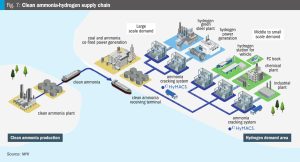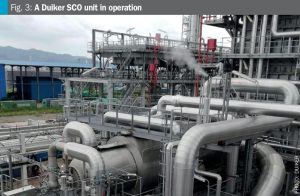Green hydrogen to decarbonise Leuna refinery
TotalEnergies has signed an agreement with the German developer RWE to supply 30,000 t/a of green hydrogen to the Leuna refinery for fifteen years, beginning in 2030. The green hydrogen will be produced by a 300 MW electrolyser, built and operated by RWE in Lingen. Green hydrogen storage will be provided locally. The green hydrogen will be delivered by a 600 km pipeline to the gates of the refinery and will prevent the site’s emission of some 300,000 tons of CO2 beginning in 2030. This is the largest quantity of green hydrogen ever contracted from an electrolyser in Germany.








